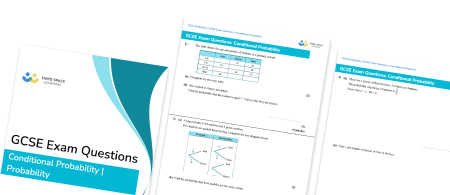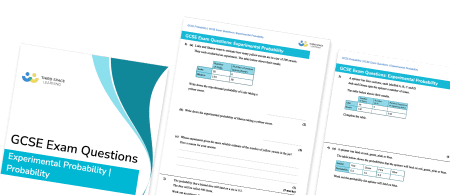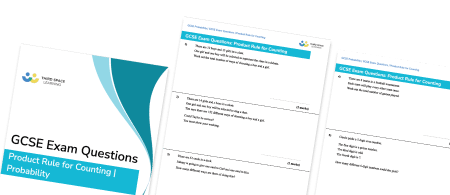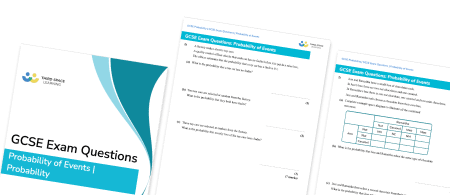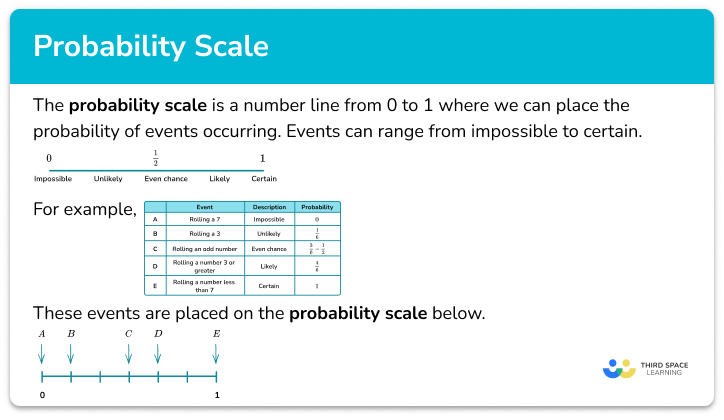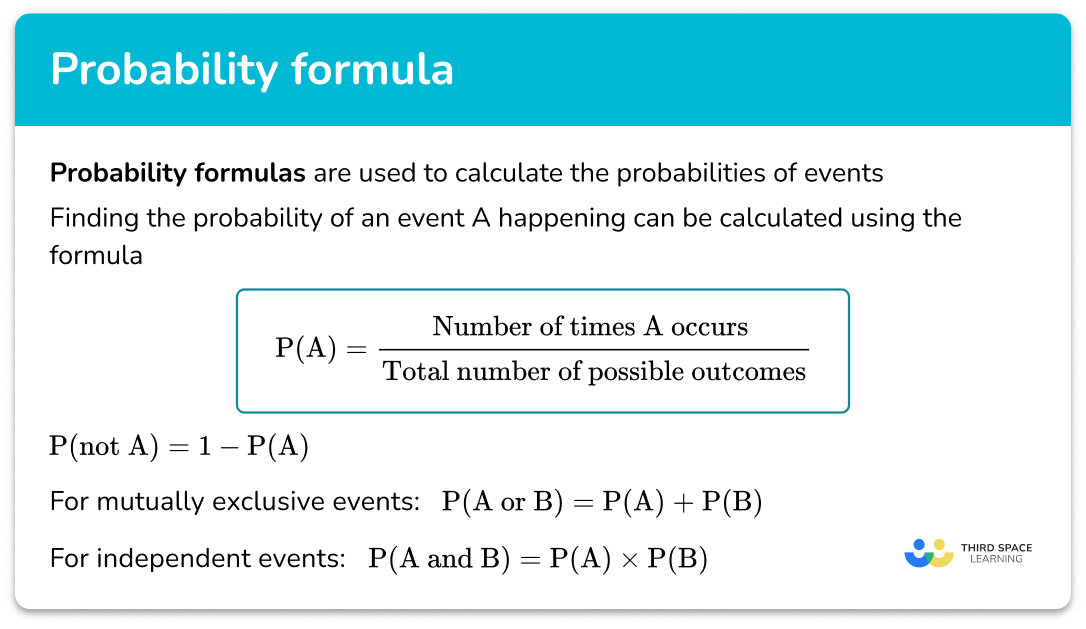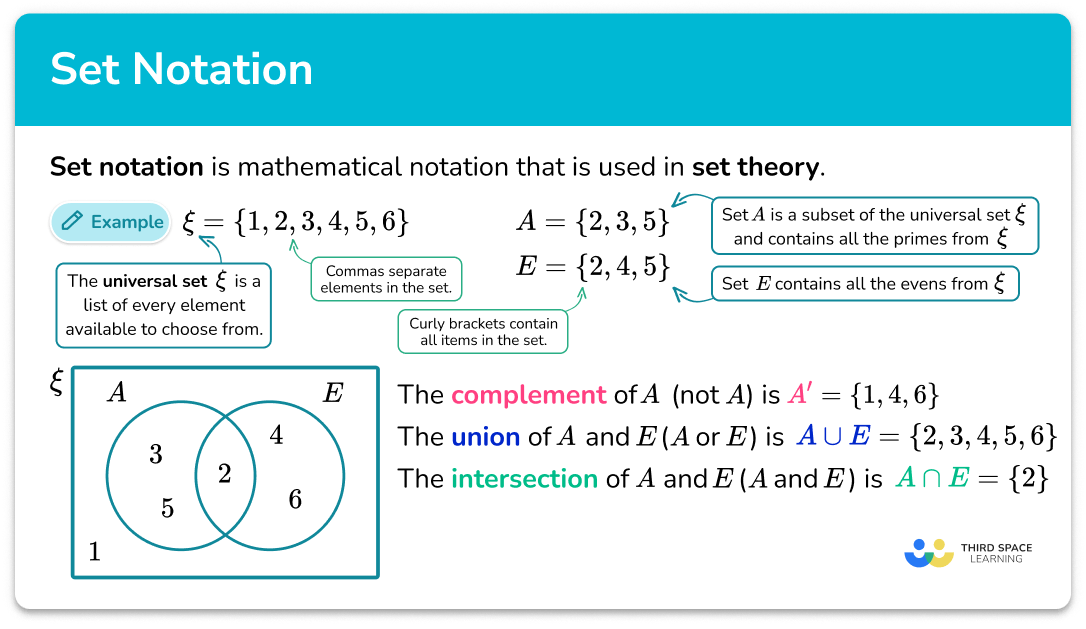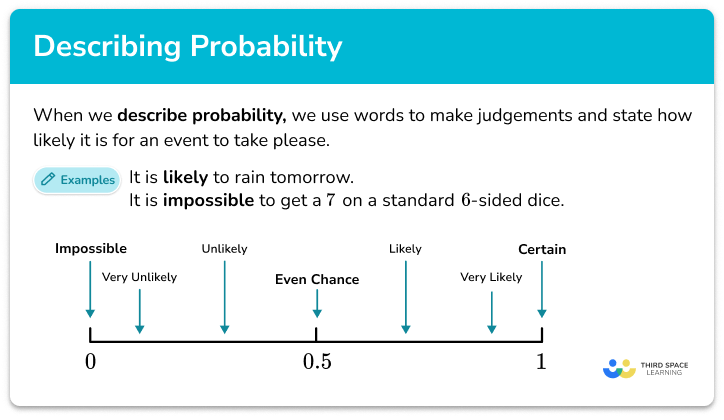FREE DOWNLOAD
Experimental Probability Worksheet

Help your students prepare for their Maths GCSE with this free experimental probability worksheet of 20+ questions and answers
- Section 1 of the experimental probability worksheet contains 20+ skills-based experimental probability questions, in 3 groups to support differentiation
- Section 2 contains 3 applied experimental probability questions with a mix of worded problems and deeper problem solving questions
- Section 3 contains 4 foundation and higher level GCSE exam style experimental probability questions
- Answers and a mark scheme for all experimental probability questions are provided
- Questions follow variation theory with plenty of opportunities for students to work independently at their own level
- All questions created by fully qualified expert secondary maths teachers
Suitable for GCSE maths revision for AQA, OCR and Edexcel exam boards
Unlock access to download your free resource
You can unsubscribe at any time (each email we send will contain an easy way to unsubscribe). To find out more about how we use your data, see our privacy policy.
Experimental probability at a glance
Experimental probability, also called relative frequency, is the probability of an event occurring based on previous events. This is useful when we don’t know the theoretical probability of an event occurring. For example, a biased spinner has three possible outcomes: red, green, and blue. We do not know the probability of each outcome but when we spin the spinner 100 times, it lands on green 17 times. The experimental probability of landing on green is 17 out of 100.
As we increase the number of trials in our experiment, the accuracy of the theoretical probability improves, and the theoretical and experimental probabilities become more similar.
Looking forward, students can then progress to additional probability worksheets, for example the Venn diagram worksheet, the mutually exclusive events worksheet, or the probability tree diagram worksheet.

For more teaching and learning support on probability our GCSE maths lessons provide step by step support for all GCSE maths concepts.
Do you have GCSE students who need additional support?
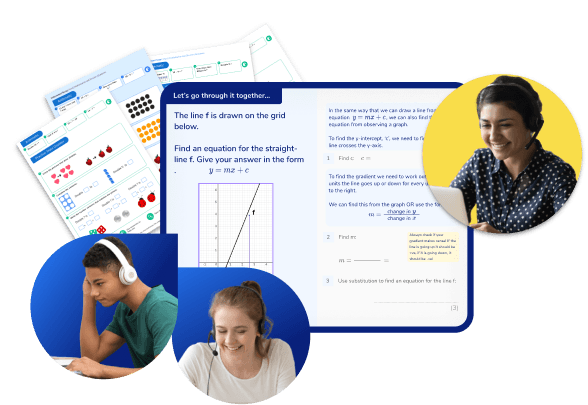
There will be students in your class who require individual attention to help them achieve their target GCSE maths grade. In a class of 30, it’s not always easy to provide.
Help your students feel confident with exam-style questions and the strategies they’ll need to answer them correctly with personalised online one to one tutoring from Third Space Learning
Lessons are selected to provide support where each student needs it most, and specially-trained GCSE maths tutors adapt the pitch and pace of each lesson. This ensures a personalised revision programme that raises grades and boosts confidence.

